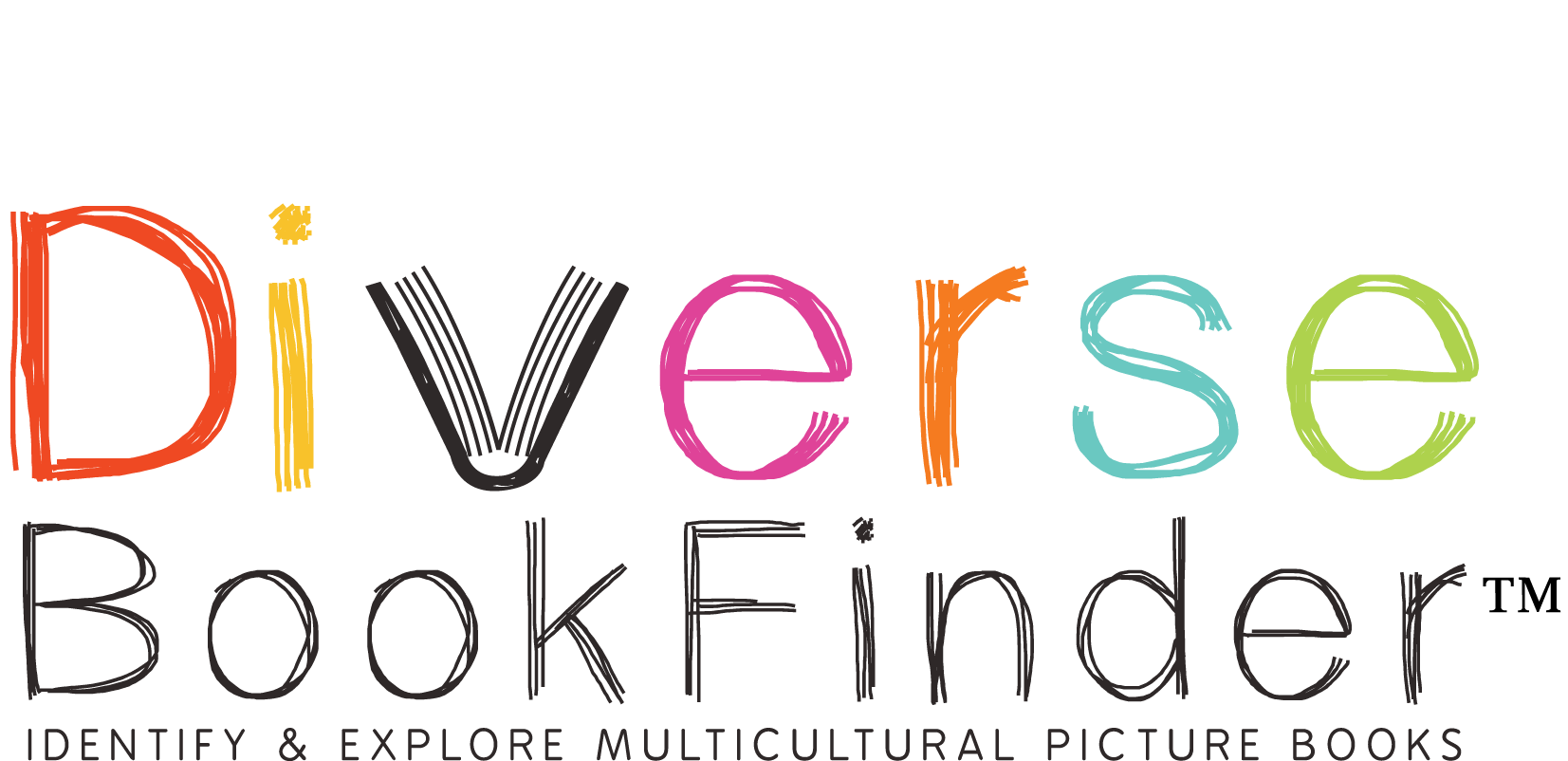Najia Khan is a graduate student at Clarion University of Pennsylvania working towards her Masters in Library and Information Science, and a current intern at the Diverse BookFinder. (See more of her bio on Our Team on our website.)

Writer for children, Own Voices author and Spoken Word coach, Rina Singh has an MFA in creative writing and is the author of many critically acclaimed picture books for children. Her most recent publications are: A Meeting in the Sky (Creative Editions); Holi Colors & Diwali Lights (Orca Books); Grandmother School (Orca Books); 111 Trees (Kids Can Press); and A Garden of Grenades (Greystone Kids), coming out in 2022. She lives with her husband in a blue house in Toronto, Canada. It’s surrounded by tall trees and it feels like she is living in a forest. There are birds, squirrels, even a rabbit and a fish pond with Japanese koi in it. She likes writing amongst the trees. You can connect with her on her website www.rinasingh.com or on Instagram & Twitter @storiesbysingh.
Q: Grandmother School is a wonderful story that helps children connect and develop relationships with an older generation. And it is also based on a true story. Did you encounter any challenges when writing?
In 2016, I heard a news clip about a little village in India, where the local teacher had built a one-room school for grandmothers. He invited them to attend, and they went to school for the first time in their lives. I was so in love with the idea that I felt I had to imagine a story happening in that village.
When I come up with an idea to write a fictional story, I have to imagine the setting, the characters, the plot, the surprise and the ending. I do have a tremendous amount of freedom to make up things as long as they make sense.

But, in writing a story like Grandmother School, I had a starting point. And the setting was already there, I only had to do my research to make sure my details were authentic. The two characters are based on my grandmother and me. My grandmother never went to school, but she used to tell me a lot of stories. So, it was fun to create the two characters.
I also have to be respectful of the cultural details. Being from India helped with that. I have traveled extensively in rural India and that gave me an edge, I think. And, I agree, it’s great to have intergenerational stories.

Grandmother School
"This brilliantly illustrated picture book tells the story of the Aajibaichi Shala, the Grandmother School, that was opened in Phangane, India, in 2016 to teach local grandmothers how to read and write. Every morning, a young girl walks her grandmother to the Aajibaichi Shala, the school that was built for the grandmothers in her village to have a place to learn to read and write. The narrator beams with pride as she drops her grandmother off with the other aajis to practice the alphabet and learn simple arithmetic. A moving story about family, women and the power of education—when Aaji learns to spell her name you’ll want to dance along with her. Women in countless countries continue to endure the limitations of illiteracy. Unjust laws have suppressed the rights of girls and women and kept many from getting an education and equal standing in society. Based on a true story from the village of Phangane, India, this brilliantly illustrated book tells the story of the grandmothers who got to go to school for the first time in their lives." -- publisher
Q: What should people know before reading your picture books? Or what might readers be curious about after reading?
I would like them to come to my books with an open mind, learn about a different culture, question things, and be inspired.
Q: What do you see as the mission of your picture books? Are they meeting their mission?
I never really thought about being on a mission but when I write these stories it is because I am drawn to them. Even as a young girl, I felt very strongly about gender inequality. Though personally I wasn’t affected because I grew up in a liberal Sikh family in India, but when I saw other girls being treated as lesser humans, it made me very angry. As I am evolving as a writer I feel drawn to children’s rights and environmental issues as well. I want children to be inspired to become activists. In Grandmother School, a village teacher brought about change and in 111 Trees, a village head changed the mindset of the people to not only accept girls but celebrate them.
I hope that 111 Trees encourages kids to further learn and explore the subject of eco-feminism. I’d like them to actively care about the environment and find ways to raise awareness that boys and girls should be treated equally in all parts of the world.

111 Trees
"In a small village in India, a boy grows up to make a huge difference in his community by planting trees to celebrate the birth of every girl. Based on a true story, this book celebrates environmental sustainability, community activism and ecofeminism. This is the story of Sundar Paliwal, who is from a small Indian village ruled by ancient customs. As he grows to be a man, Sundar suffers much heartbreak and decides it is time for change to come to his village. Sundar is determined to live in a place where girls are valued as much as boys and where the land is not devastated by irresponsible mining. Sundar's plan? To celebrate the birth of every girl with the planting of 111 trees. Though many villagers resist at first, Sundar slowly gains their support. And today, there are over a quarter of a million trees in his village, providing food, water and opportunities for women to earn a living. His efforts have turned a once barren and deforested landscape into a fertile and prosperous one where girls can thrive. Based on true events in the life of Sundar Paliwal, and written in collaboration with him, Rina Singh's uplifting story shows how one person can make a difference in a community. Beautiful illustrations by Marianne Ferrer sensitively bring the evolution of the village to life. With strong links to the science curriculum, this book offers lessons on environmental awareness, sustainability and stewardship, as well as the concept of ecofeminism. It also explores ideas of social development, community and culture, and the character education traits of responsibility and cooperation. A thoroughly researched author's note with photographs and more information about the village of Piplantri is included." -- publisher
Q: Are there any discussion questions, curriculum, videos, or other materials that would help readers engage with your picture books?
Find activities for Grandmother School here.
Book Trailer for Grandmother School:
Book Trailer for 111 Trees:
Q: How would you describe your books’ contribution to the multicultural picture book world?
That is for the readers to judge, I think, but I definitely hope that my books encourage kids to further explore the subjects I touch upon in my books – gender inequality, eco-feminism, and social justice.
I hope my stories inspire children to see how one individual's actions can bring about great, positive change.
I would encourage them to find out about organizations in their countries that fight to protect the environment and promote equality for girls.
My message would be: Get involved!
- In Canada, get involved with Tree Canada. It takes only $5 to plant a tree. Help your school do a fundraiser. Visit their virtual forest.
- Plan International is a member of a global organization dedicated to advancing children’s rights and equality for girls. Find out how you can get involved in the Because I am a Girl campaign. Become an eco-feminist!
What do you find to be the most difficult part of writing today? What is the most rewarding?
The most challenging part about writing is to sit in the chair and write no matter what, even if it means staring at a blank screen or a blank page.
The most rewarding part of being a writer is that I can slip into another world for a while, and it stops time for me.
I also love it when children connect to my stories. Recently, I read Grandmother School to a Grade Two class and when their teacher asked them to make a personal connection, a girl wrote: “I’m sad I don’t remember my grandma’s name.”
I just wanted to give that child a hug.
I love the picture book genre so much that work never feels like work. It also keeps me grounded.

Are you working on anything now? What is next for you?
I’m working on a picture book biography of an activist and revising a graphic novel that I attempted during the lockdown in 2020. And I just wrote my first wordless book. The pandemic and the lock down have shifted many things in my brain, as I am sure it has affected everyone. I’m questioning the relevance of new ideas that come to me. And when I get stuck, I find shelter in poetry.
And last, what is your favorite childhood book?
I might have to skip this question because I grew up at a time in India when Children’s Literature did not exist as a genre. But had books been available to me, I think The Giving Tree by Shel Silverstein would have been my favorite because when I read the book, it changed me forever.

